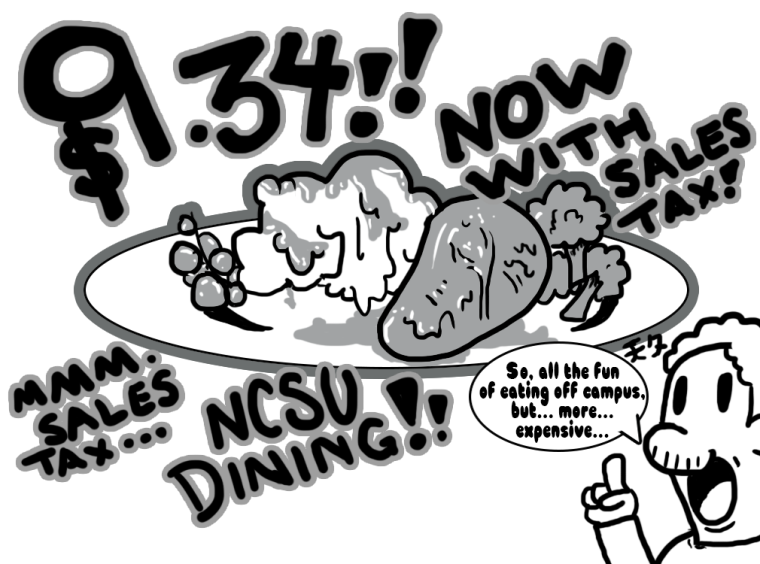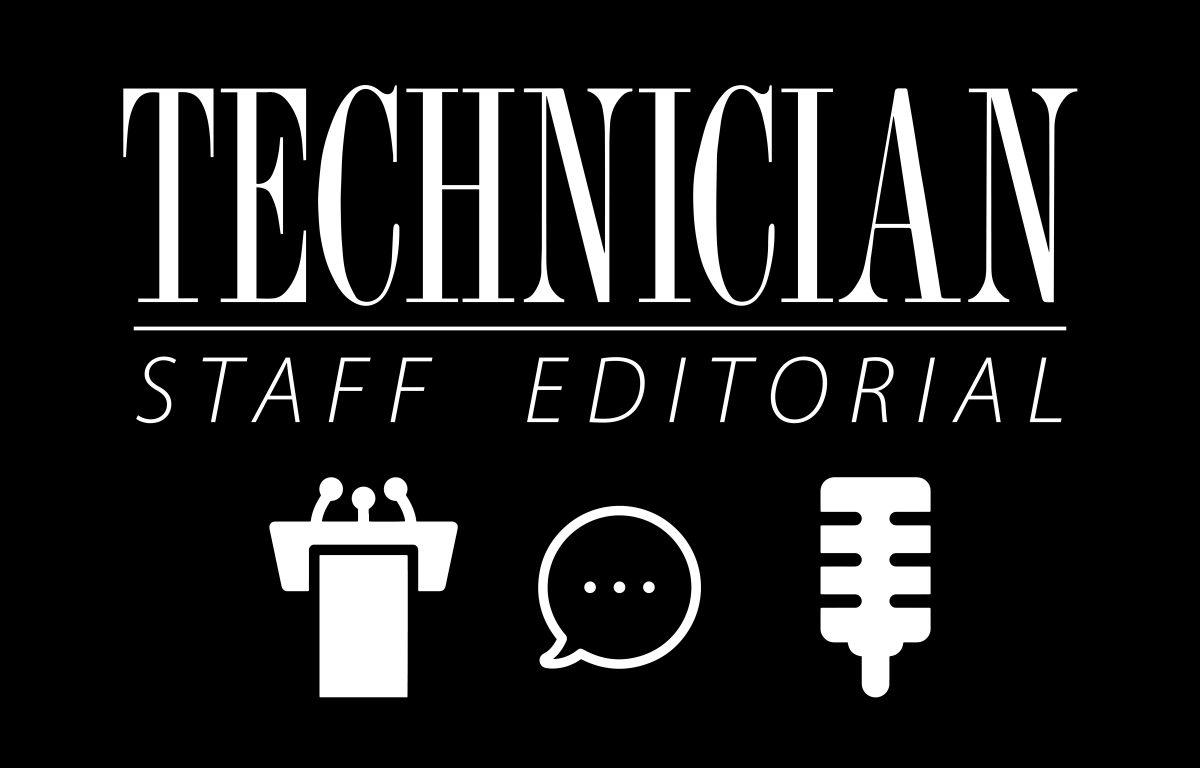The North Carolina General Assembly passed a tax reform bill this summer that will directly impact university dining plans on college campuses.
House Bill 998, signed by Gov. Pat McCrory on July 23, will force universities to charge a 6.75 percent tax on food starting Jan. 1. Meal plan prices will not increase for the spring semester but the taxes will still apply, meaning students will get less food out of their meal plans. The cost of meal plans rises every year, but because of the new tax requirement we can expect a larger increase than usual for the 2014-15 year.
In our eyes, this bill effectively kills dining dollars and the new commuter plan because they will no longer be able to offer their primary benefit—tax free food. Jennifer Gilmore, director of marketing and communication for Campus Enterprises, said the next main benefit of the commuter plan is that students can have it billed directly from the cashier’s office through financial aid rather than having to write a check.
People with commuter meal plans currently pay $8.75 for dinner at a dining hall, but with the 6.75 percent tax tacked onto university dining food the walk-in price for dinner at Fountain Dining Hall or Clark Dining Hall will increase to $9.34.
In the 30 years of University Dining’s existence, there is no record of ever having to charge a tax according to Gilmore. This is probably because there has not been a tax overhaul as extreme as HB998 in the past 30 years.
The General Assembly snuck in the new food tax on a bill that also decreased personal and corporate income tax.
Beginning Jan. 1, personal income taxes will decrease from 7.75 percent to 5.8 percent while corporate income taxes will fall from 6.9 percent to 6 percent. In 2015, personal income taxes will drop to 5.75 percent and corporate taxes will decrease to 5 percent.
Republican backers said income tax cuts will help the economy because “people will have more money to spend,” according to the Fayetteville Observer. But while the income tax cuts proportionally save upper class citizens more money than lower class citizens, the supplemental food tax charges everyone the same amount.
The General Assembly is taxing college students’ meal plans, among other food sales, to make up for the projected $86.6 million in revenue that North Carolina will lose in 2013-14 due to these cuts. It makes more sense to charge taxes proportionally according to income rather than implementing widespread taxes on a necessary commodity.
The legislature has already passed several new bills this year that directly disadvantage college students financially. HB998 increases our food costs while Senate Bill 667 imposes large fees on the parents of students who register to vote in a different county than the one of their home address. If the legislature was so concerned about money, it should have considered this projection: Throughout the next five years, state revenues are expected to have lost more than $2.4 billion according to CNNMoney.com. The legislature is clearly aware of this, but by implementing HB998, it has further demonstrated its commitment to making the rich richer.




